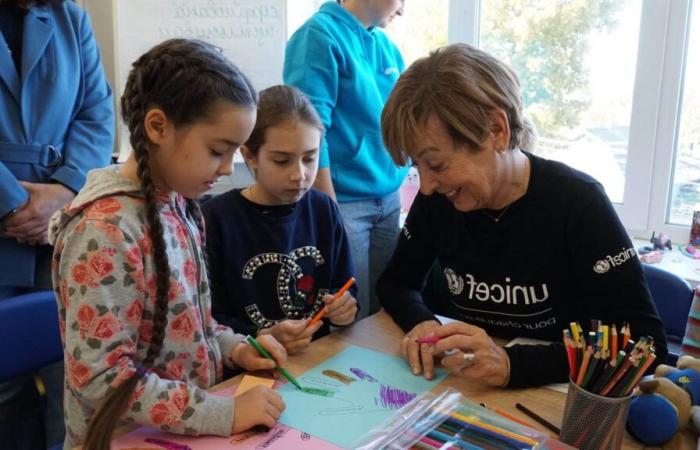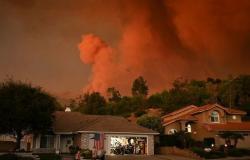After Lebanon, Morocco and Guyana, Adeline Hazan, president of UNICEF France, recently visited Ukraine with Adrien Taquet, former Secretary of State responsible for children and families and member of the Board of Directors of UNICEF France. She testifies.
Why was your visit to Ukraine important?
This is my first mission in a country at war. It was particularly close to my heart to meet Ukrainian familiesat the dawn of this 3th winter that they have been preparing to face since the start of the conflict. It was also important to me to see for myself the actions carried out by UNICEF teams on site.
What is the situation of children in Ukraine currently?
“The war is getting bogged down, and the situation is becoming more and more dramatic.”
Three major issues emerge. THE first concerns children's mental health. The consequences of the conflict are undeniable on all children, whether directly or indirectly.
The second issue concerns learning and socialization. Most schools remain closed, except those equipped with basement shelters. The children then continue their education online, without having the possibility of attending classes in person.
Finally, there is the crucial question landmine clearance. An estimated 25% of the country is contaminated with mines and missile debris, making Ukraine the most mined country in Europe. Even if the war ended, demining the territory would take nearly 70 years.
Naturally, there are also population movements. Since the start of the conflict in February 2022, 6 million Ukrainians, 88% of them women and children, fled to Europewhile that 3.7 million others have been displaced inside the country.
6,000,000
6 million Ukrainians, 88% of them women and children, fled to Europe
Among those who left Ukraine, nearly 40% of 14-25 year olds found refuge elsewhere and the challenge is to encourage them to return. After nearly 3 years of war, returning is becoming increasingly difficult. Yet it is essential for the reconstruction of Ukraine.
What struck you most during your visit?
“I had the opportunity to interact with many children and I was deeply marked by the resilience and their “life force” which pushes them to plan for the future.”
The energy of the UNICEF teams also impressed me. The office in Ukraine, which had 100 people before 2022, now has 350 people.
Access to education is an important issue for UNICEF. As such, you visited several schools during your stay, can you tell us a little more?
It is important to remember that this war follows the Covid-19 pandemic and periods of confinement. For children, this represents not the third but the fifth year without access to face-to-face “classical education”.
0
5 million children have seen their education interrupted since February 2022.
“Many parents have shared with me their concern about the risk of bombing and are reluctant to allow their children to go to school. Today, 3 out of 4 children cannot yet return to face-to-face school because only those with shelters are authorized to welcome students.”
With the former Secretary of State, Adrien Taquet, we visited a school where the windows had been blown out and all the neighboring houses were destroyed.
UNICEF teams, in collaboration with their partners, are working to rehabilitate school basement shelters, support online education and provide psychosocial support to children and their parents. Since the beginning of the year, more than 370,939 children had access to formal or non-formal education thanks to our actions.
What are UNICEF's main actions?
The needs on the ground remain considerable. UNICEF focuses its actions around 3 main priorities :
- Contribute to the infrastructure rehabilitationincluding schools, shelters, and water and sanitation systems
- Distribute hygiene kits and essential goods such as fuel, clothing, school supplies, tablets
- Providing psychosocial support and child-friendly protection (in schools, youth centers and UNICEF Friendly Spaces)
“War and childhood are irreconcilable. Seeing children grow up in a country at war, surrounded by parents consumed by anxiety, is unbearable. Children need peace to be able to rebuild themselves.”






